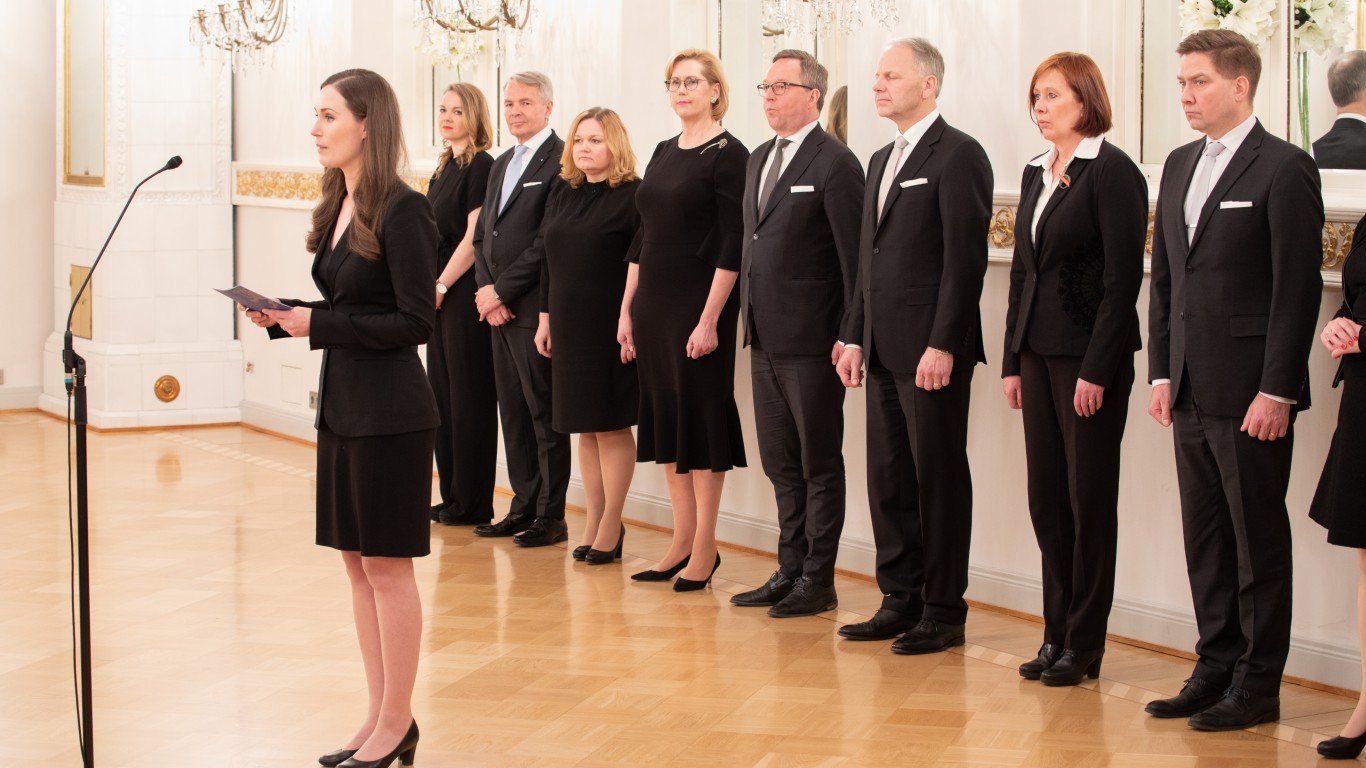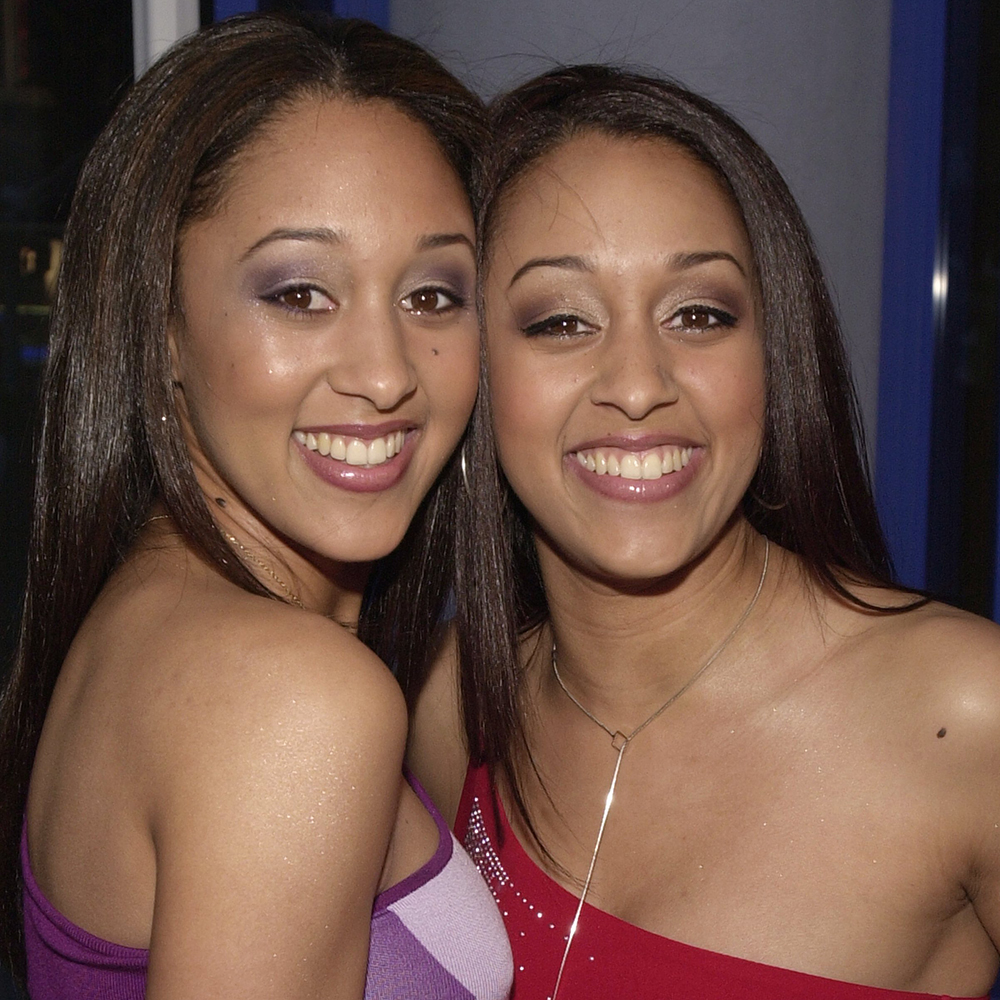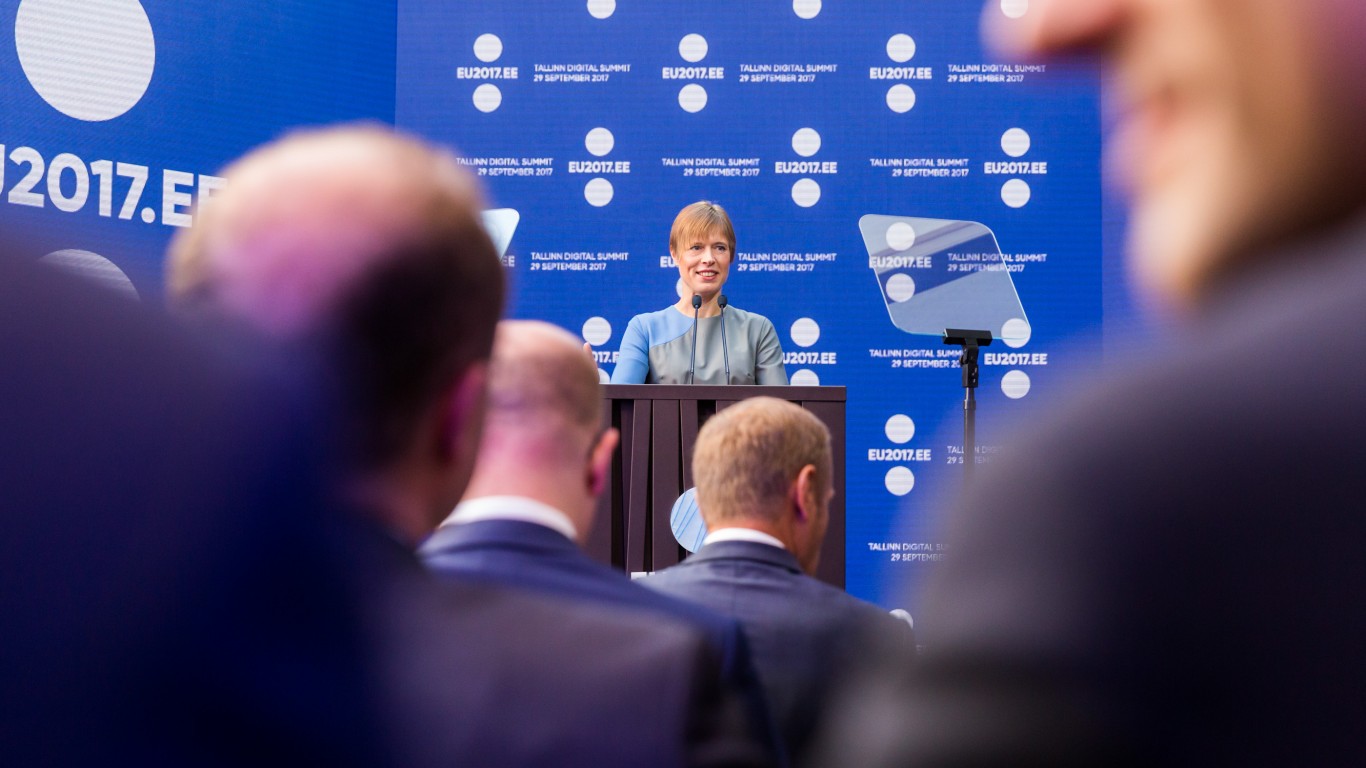

The United States came close in 2016 to having a female leader for the first time. And though the field of candidates in the current Democratic primaries included several women, nearly all ended their campaign — also ending any hopes of another woman making a serious bid for the White House.
While the U.S. may eventually elect a female president, many countries have already beaten America to that milestone in the modern era. 24/7 Tempo reviewed countries with female leaders — some elected to their post, and others approved by parliament.
Canada’s Prime Minister Justin Trudeau is now famous for heading the country’s first gender-equal cabinet. Gender equality, however, especially when it comes to political empowerment, won’t be a reality for at least another century, according to the World Economic Forum. (But some nations are doing more than others to get there faster – these are the 15 countries that have come closest to true gender equality.)
Click here for countries currently led by a woman.
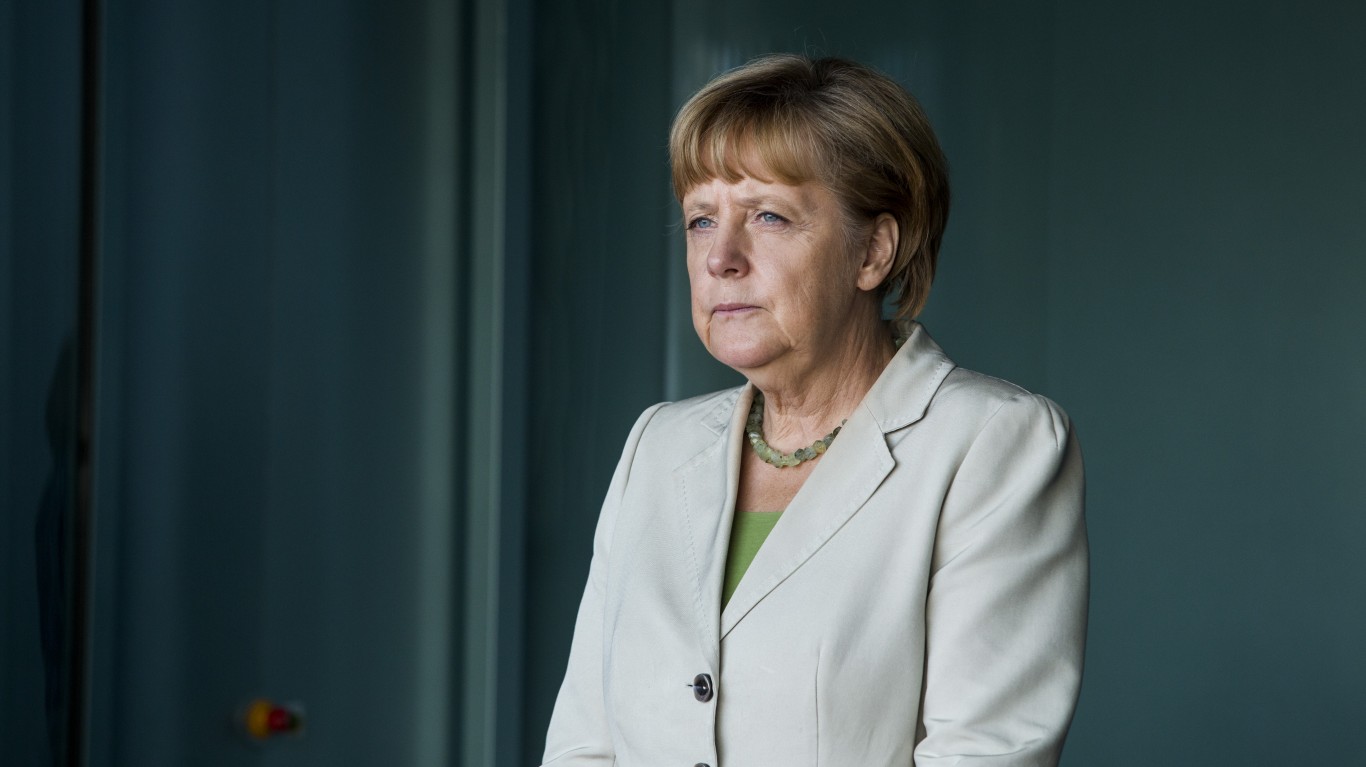
Angela Merkel, Chancellor of Germany
During her prolonged tenure as chancellor of Germany, the world’s fourth largest economy and Europe’s largest, Angela Merkel has been called “the de facto leader of the European Union.” Known as a practical leader, Merkel has been in office since 2005. She is currently serving her fourth, and last, term. She was praised for her handling of the euro crisis, transitioning the country to alternative energy sources, introducing a minimum wage, and introducing a tax-financed parent benefit program. Her popularity slipped when she opened the country’ borders to refugees.
[in-text-ad]
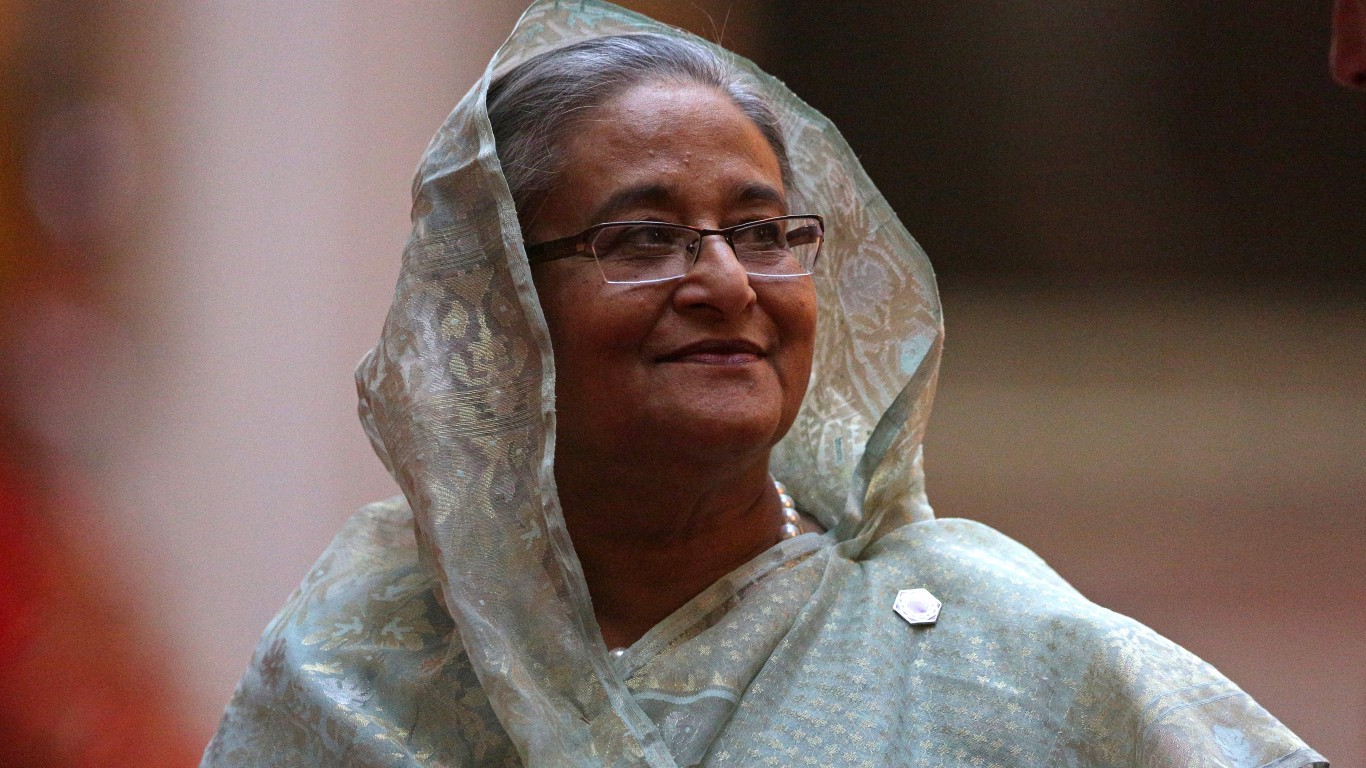
Sheikh Hasina Wajed, Prime Minister of Bangladesh
Bangladesh is a parliamentary democratic republic, and the prime minister is the head of government. Sheikh Hasina Wajed’s first time in office was between 1996 until 2001, a period during which the economy significantly improved, but the country remained politically unstable. Hasina’s second tenure as PM started in 2009. (The prime minister between 2001 and 2006 was also a woman — Khaleda Zia.) Hasina, who is the daughter of Bangladesh’s founder Bangabandhu Sheikh Mujibur Rahman, won the last elections in January 2019 by a landslide. When her term is over in 2023, she will have been a leader of the country for 20 years.
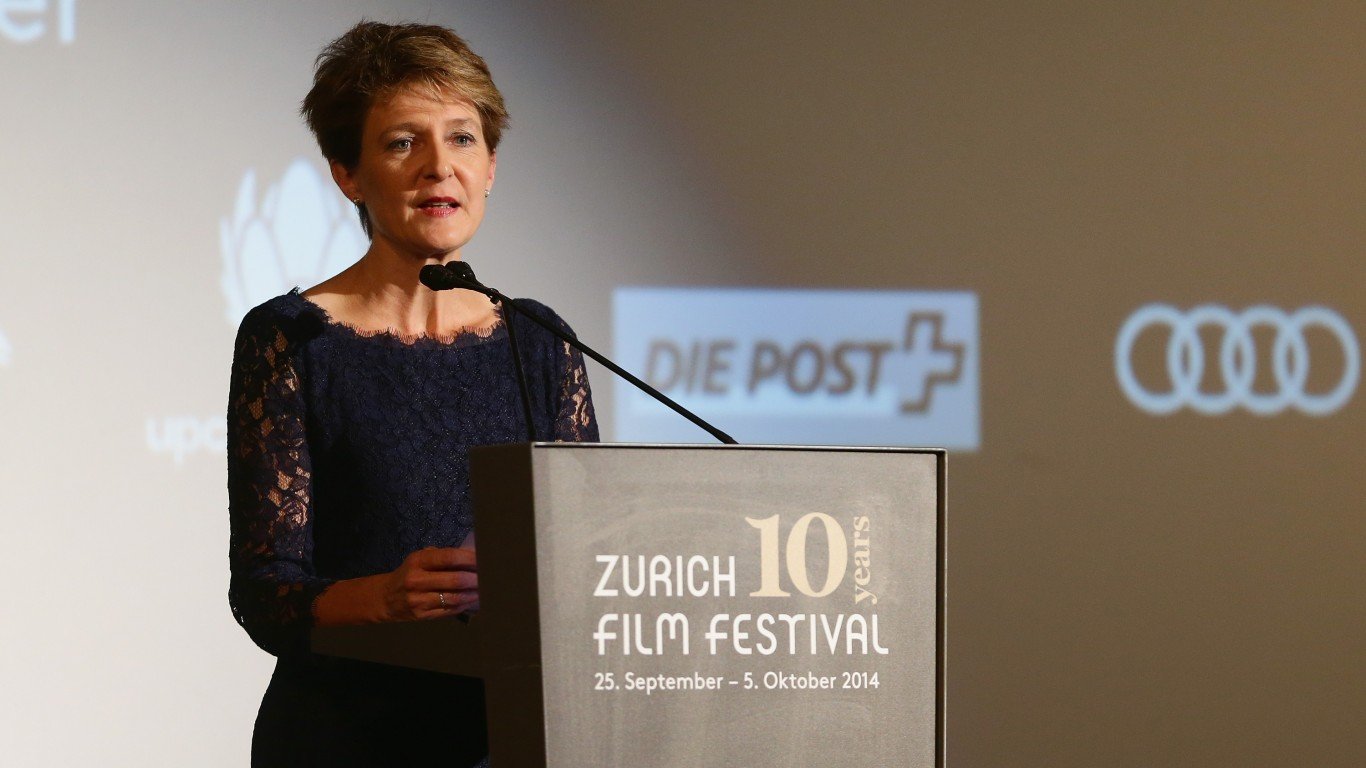
Simonetta Sommaruga, President of Switzerland
The president Switzerland, who is elected by the Swiss Federal Council, can serve for 12 months, is both the head of state and head of government. Simonetta Sommaruga assumed office on Jan. 1, 2020. She was the President of Switzerland in 2015 as well. The president is “first among equals.” The president chairs Council meetings, mediates when there are disputes, and order precautionary measures in cases of an emergency.
Erna Solberg, Prime Minister of Norway
The head of state is King Harald V, but he is mostly a ceremonial figure because Norway is a constitutional monarchy. The leader of the government in Norway is Prime Minister Erna Solberg, who is currently serving her second term. Solberg is the second woman to be elected Norway’s prime minister. She is praised for handling an oil crisis in the mid-2010s, avoiding a recession.
[in-text-ad-2]
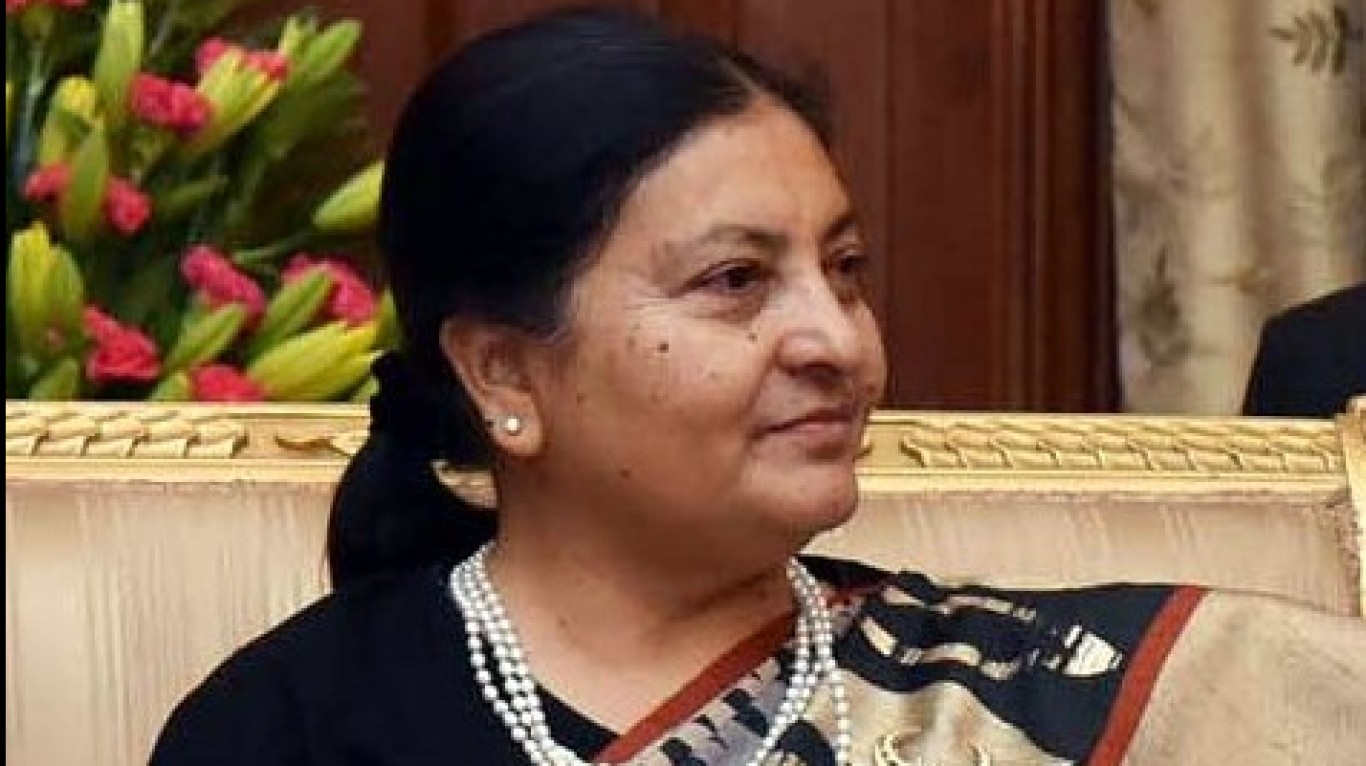
Bidhya Devi Bhandari, President of Nepal
Elected in 2015, Bidhya Devi Bhandari is Nepal’s first female president, a largely ceremonial post. A women’s rights advocate, she is known for carving out a mandate in the country’s post-war constitution that at least a third of the country’s parliament’s positions are held by women and and either the president or vice-president must be a woman.
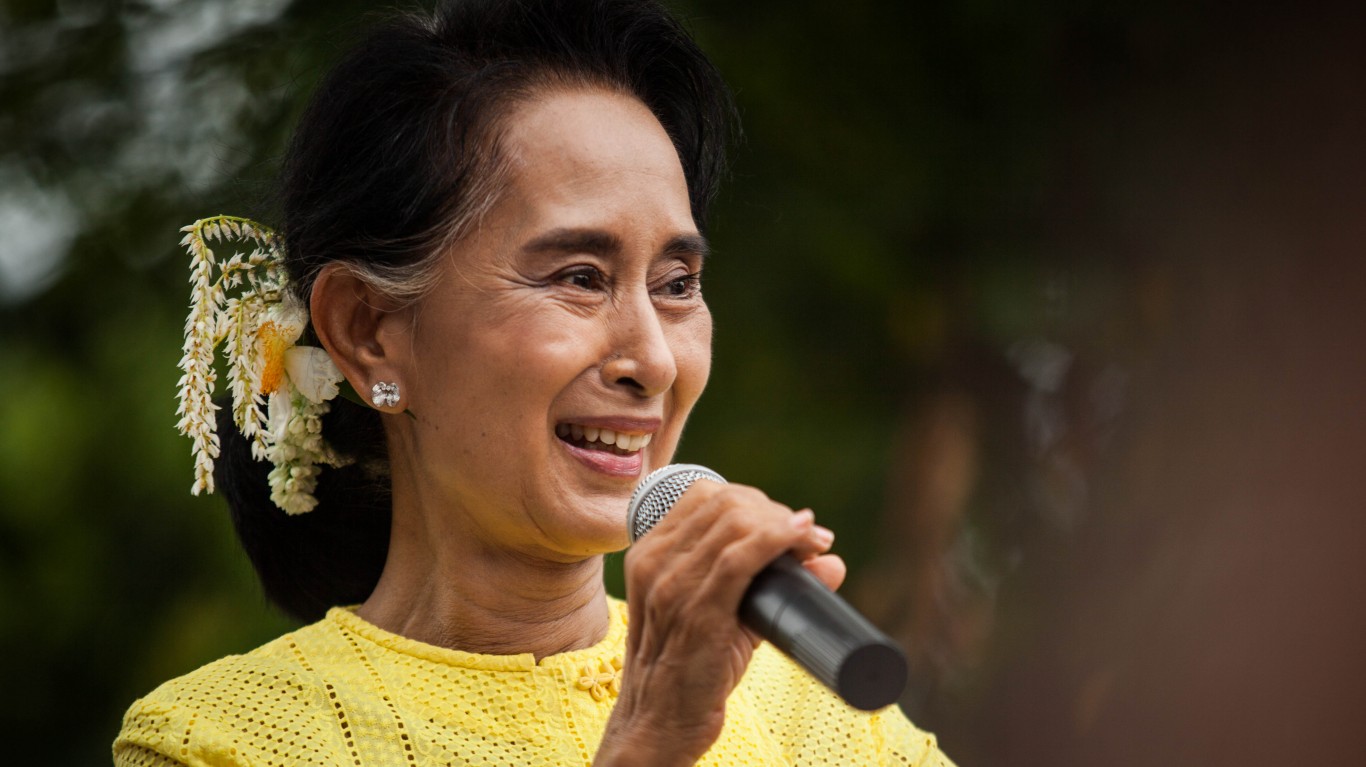
Aung San Suu Kyi, de facto leader of Myanmar
An opposition leader and the daughter of Aung San, a national hero of independent Burma, Aung San Suu Kyi’s National League for Democracy party won the 2015 election in a landslide. Even though she is not president of Myanmar, she is largely seen as the de facto leader of the country. Technically, she is a state counsellor, a position that was created specifically for her to allow her a greater role in the government. She was barred from running for president because both her sons are British citizens. The 1991 Nobel Peace Prize winner has recently come under fire for her refusal to denounce the country’s brutal treatment of the Rohingya Muslim minority.
[in-text-ad]
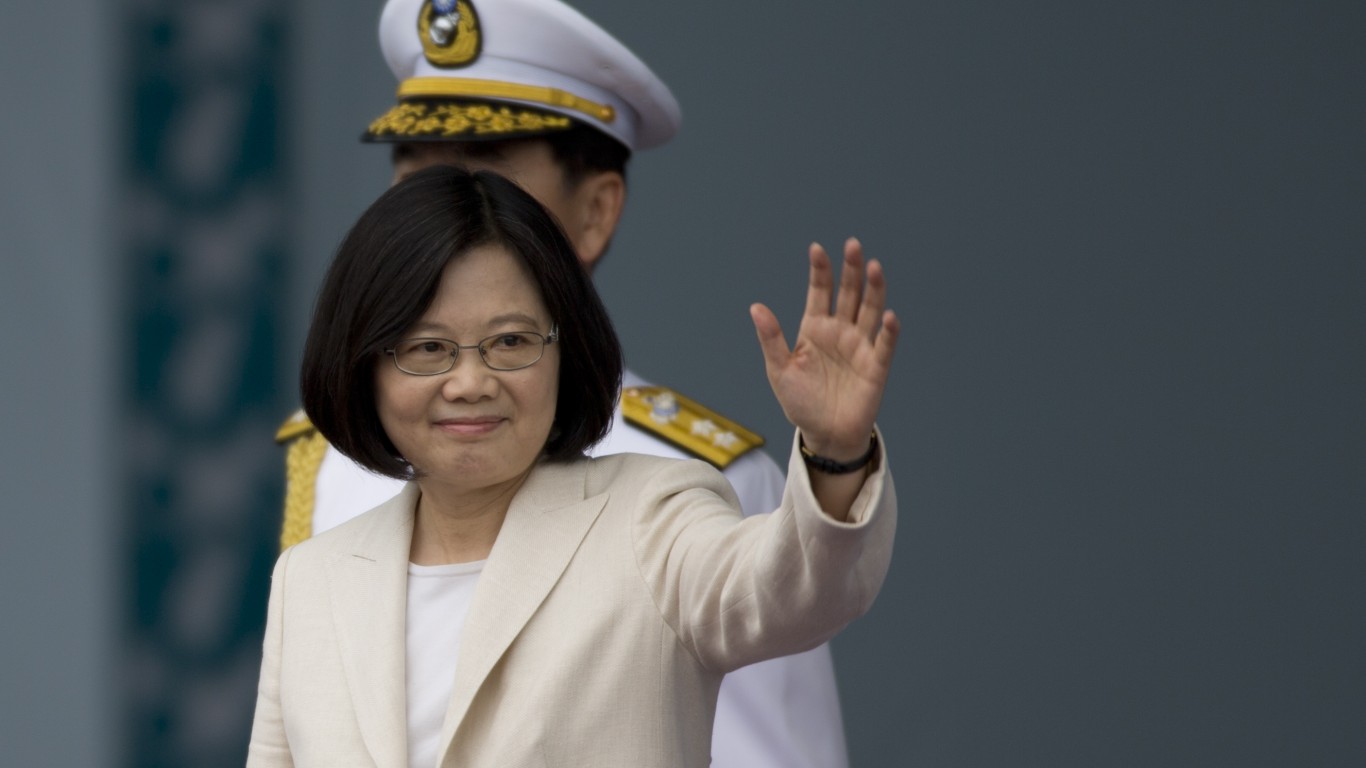
Tsai Ing-wen, President of Taiwan
Taiwan (officially known as the Republic of China), which China considers a province. Because of that dispute, Taiwan is recognized by just a few countries around the world. Taiwan has a democratically elected government. Tsai Ing-wen is the first female elected to the post of head of state in Taiwan’s history, and she has been in office since 2016. She is known for her rejection of China’s “one country, two systems” policy, and her support for a sovereign Taiwan.
Kersti Kaljulaid, President of Estonia
Kersti Kaljulaid has been the president of the Baltic nation since 2016 and is the first female president of Estonia. Before becoming president, Kaljulaid worked in both the private and public sectors mostly in finance and economics. Kaljulaid was an economic adviser to former Prime Minister Mart Laar and was involved in pension reform. Kaljulaid, the mother of four, ran in the 2018 New York City Marathon and completed the course in just over four hours.
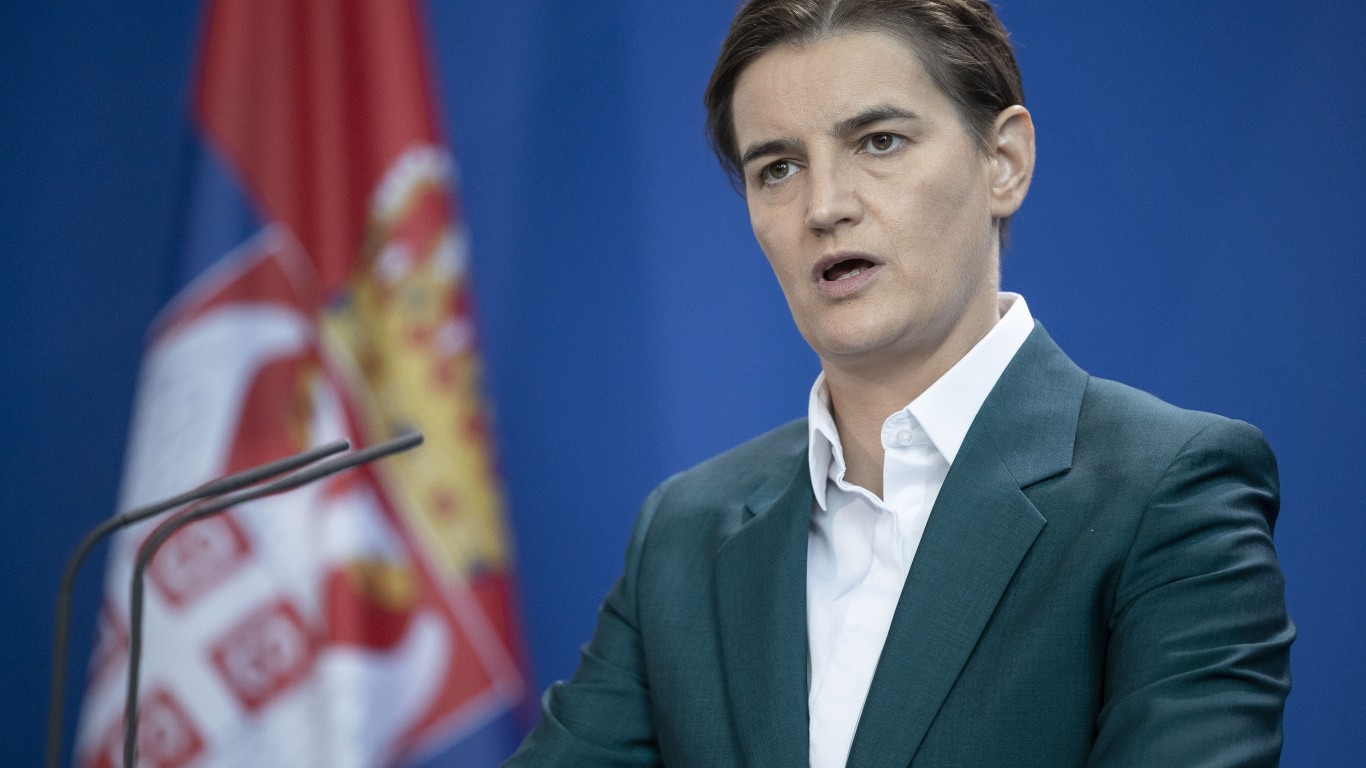
Ana Brnabić, Prime Minister of Serbia
Ana Brnabić is not only Serbia’s first prime minister, but also the Balkan nation’s first openly gay leader. Same-sex marriage is not recognized in Serbia. Brnabić was nominated by President Aleksandar Vučić to be PM in 2017 and Parliament approved her and voted in her cabinet. She only entered politics a year earlier. Before her political career, Brnabić led the ministry of public administration. She supports entrepreneurship and is an advocate for wind power.
[in-text-ad-2]
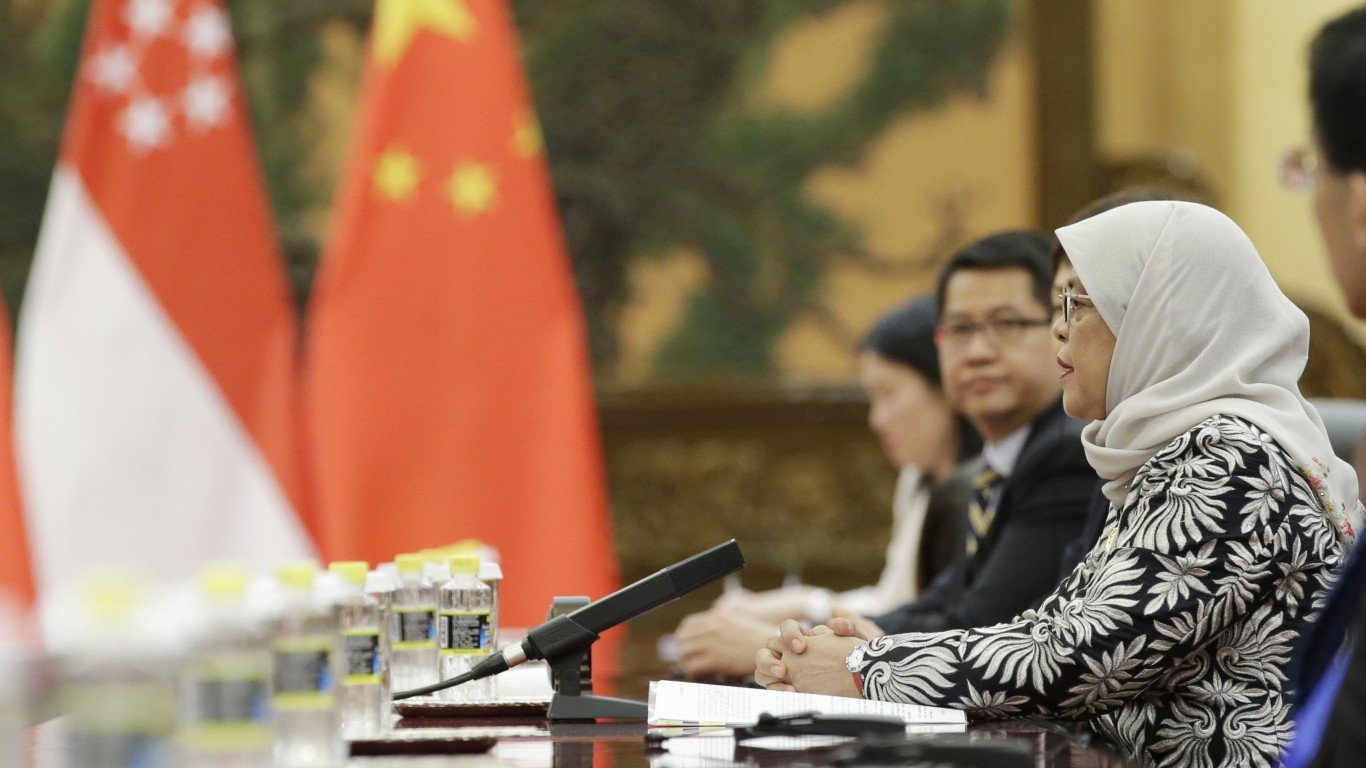
Halimah Yacob, President of Singapore
Halimah Yacob is the first female president of Singapore. Her tenure did not get off to a positive start in 2017. She ran unopposed as the Constitutional Commission had disqualified all of her opponents. While her role as president is largely ceremonial, she does have some power, including authorizing investigations into corruption, disapproving budgets, vetoing bills, and appointing supreme court judges.
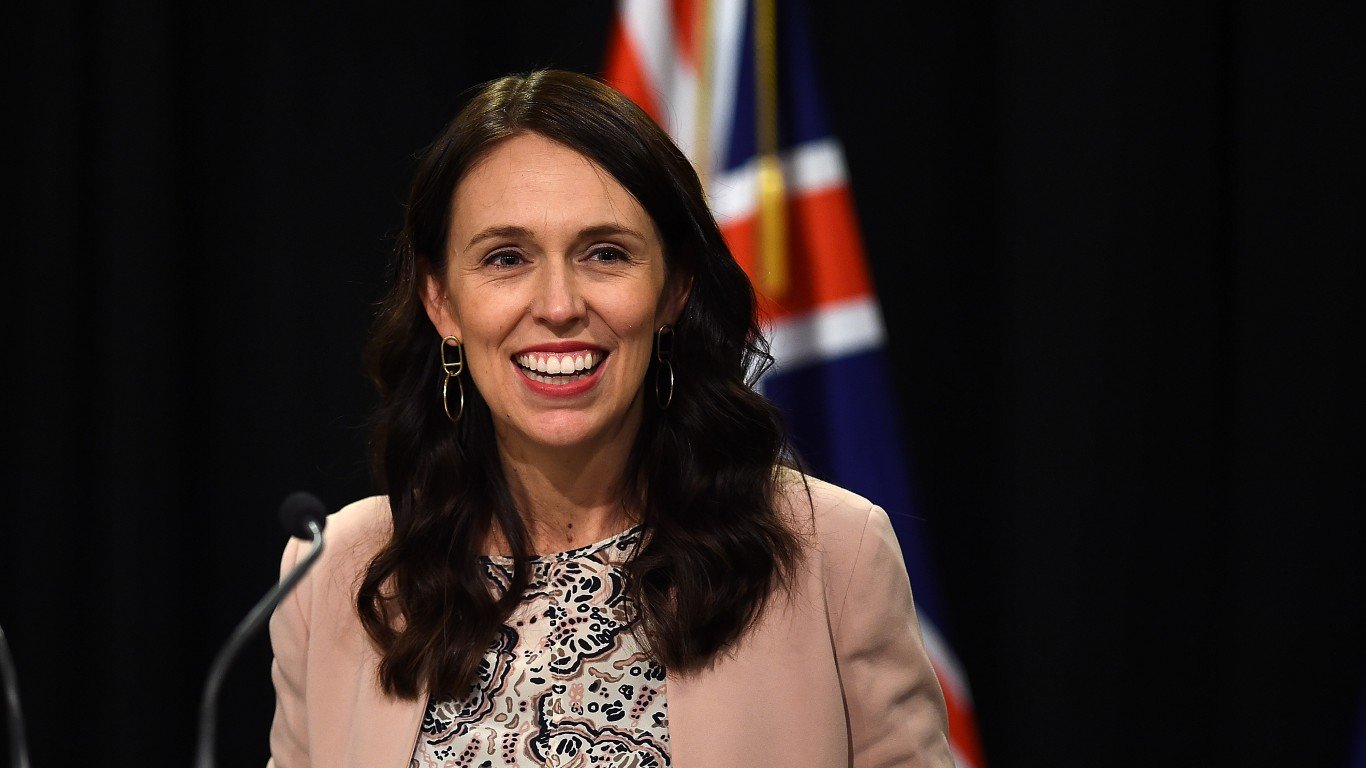
Jacinda Ardern, Prime Minister of New Zealand
Jacinda Ardern is the youngest prime minister of New Zealand in more than 150 years. She was elected in 2017 at the age of 37. Ardem is popular and liked as a progressive. She is only the second leader of a country to give birth while in office, and her partner stayed home to take care of the child. Ardern was praised for her response to the two mosque shootings in Christchurch last May that left at least 51 people dead. She visited Christchurch the next day, wore a hijab, consoled families, and called the attacks “terrorism.” In 2019 she was challenged to describe her government’s achievements in two minutes; the video of her speech went viral. Some of the accomplishments include creating almost 100,000 jobs, building state houses, planting millions of trees, and improving cancer care and treatment.
[in-text-ad]
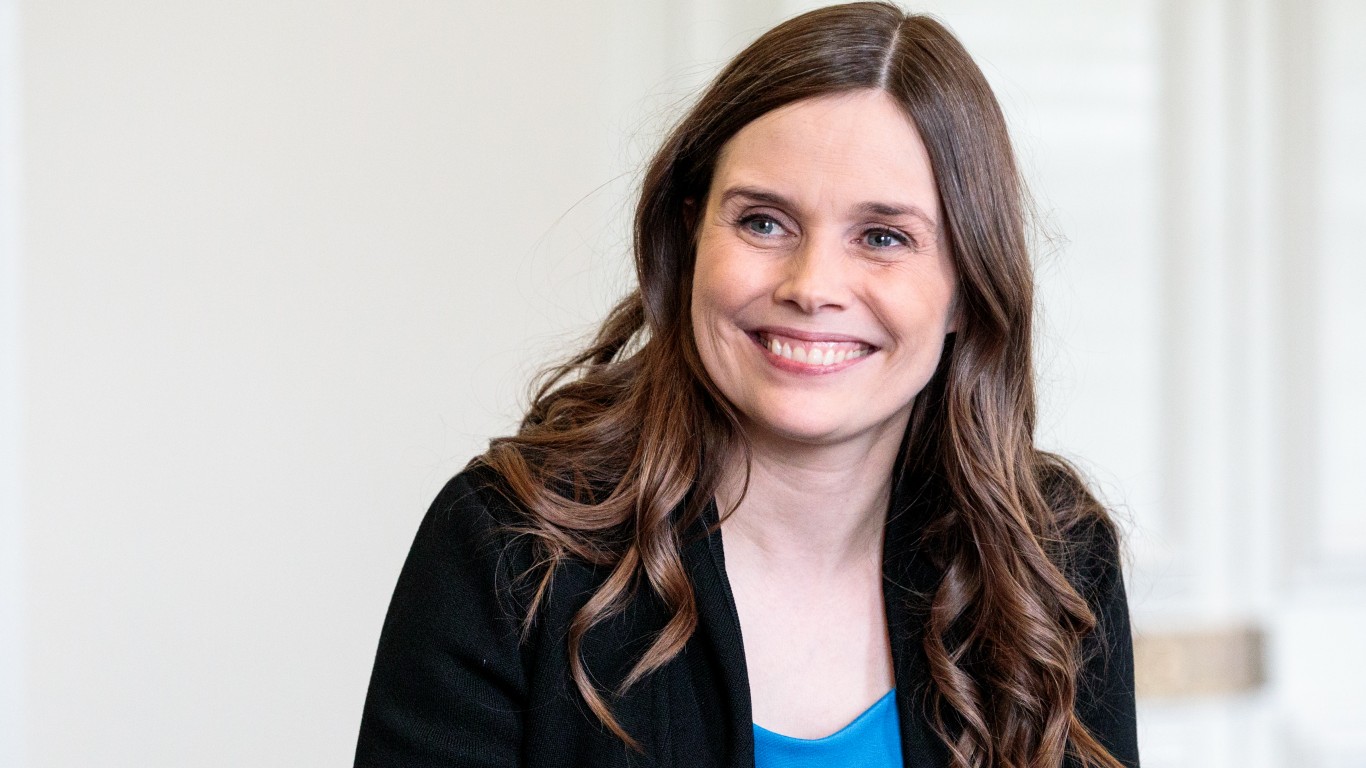
Katrín Jakobsdóttir, Prime Minister of Iceland
Katrín Jakobsdóttir has been prime minister of Iceland since 2017. Jakobsdóttir is the second female PM of the Nordic nation, following in the footsteps of Jóhanna Sigurðardóttir, who served from 2009 to 2013. With Iceland located close to the Arctic Circle, Jakobsdóttir is very concerned about the impact of climate change. Jakobsdóttir, the country’s former education minister, hopes to make Iceland a carbon-neutral nation by 2040. Besides the environment, she also raised concerns about the negative influence social media is having on politics.
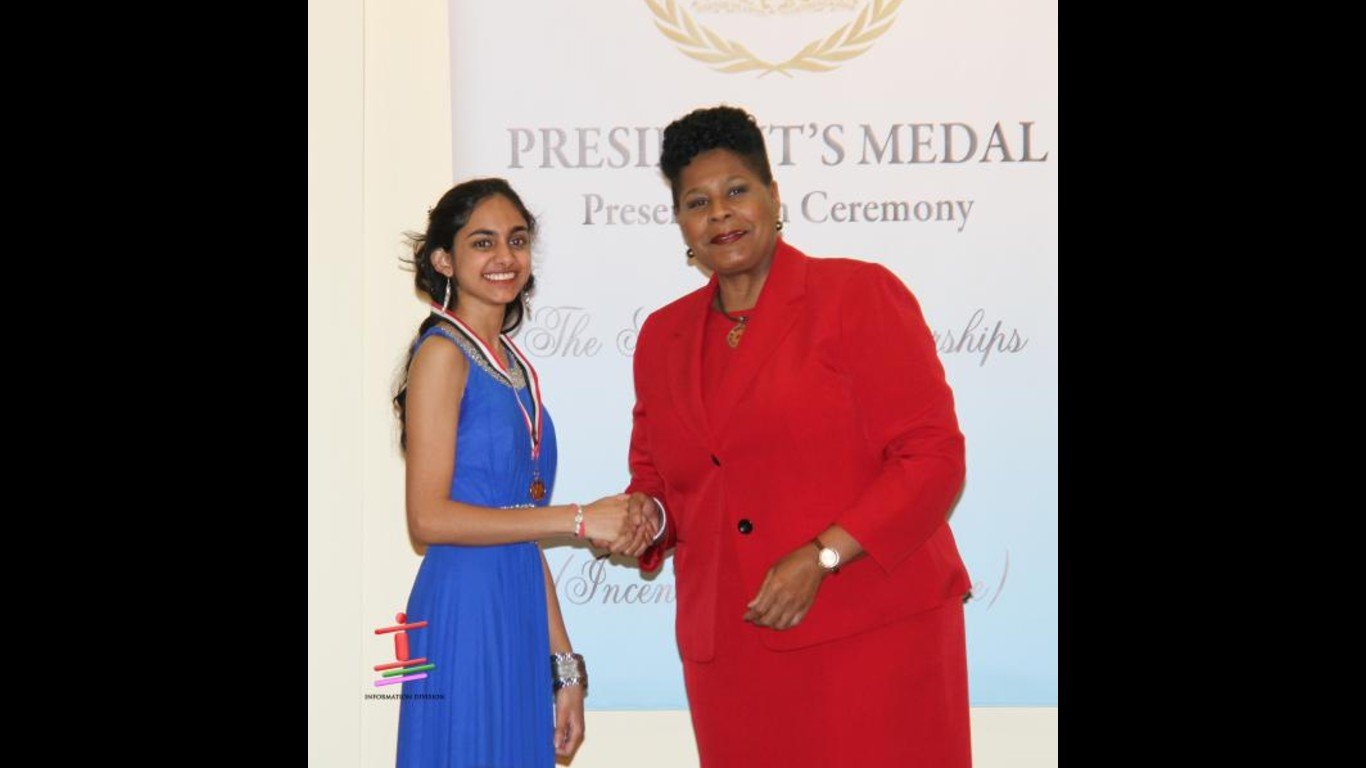
Paula-Mae Weekes, President of Trinidad and Tobago
Paula-Mae Weekes became the first woman president of the Caribbean nation in 2018, after an extensive legal career. Weekes rose to become acting chief justice of the Trinidad and Tobago Supreme Court and served on the Appellate Branch of the Judiciary of the Turks and Caicos. She was also chancellor of the Anglican Church for 20 years. Hers is a daunting task as the nation’s chief executive. Trinidad and Tobago has one of the highest murder rates in the world with a homcide rate of almost 31 per 100,000 people.
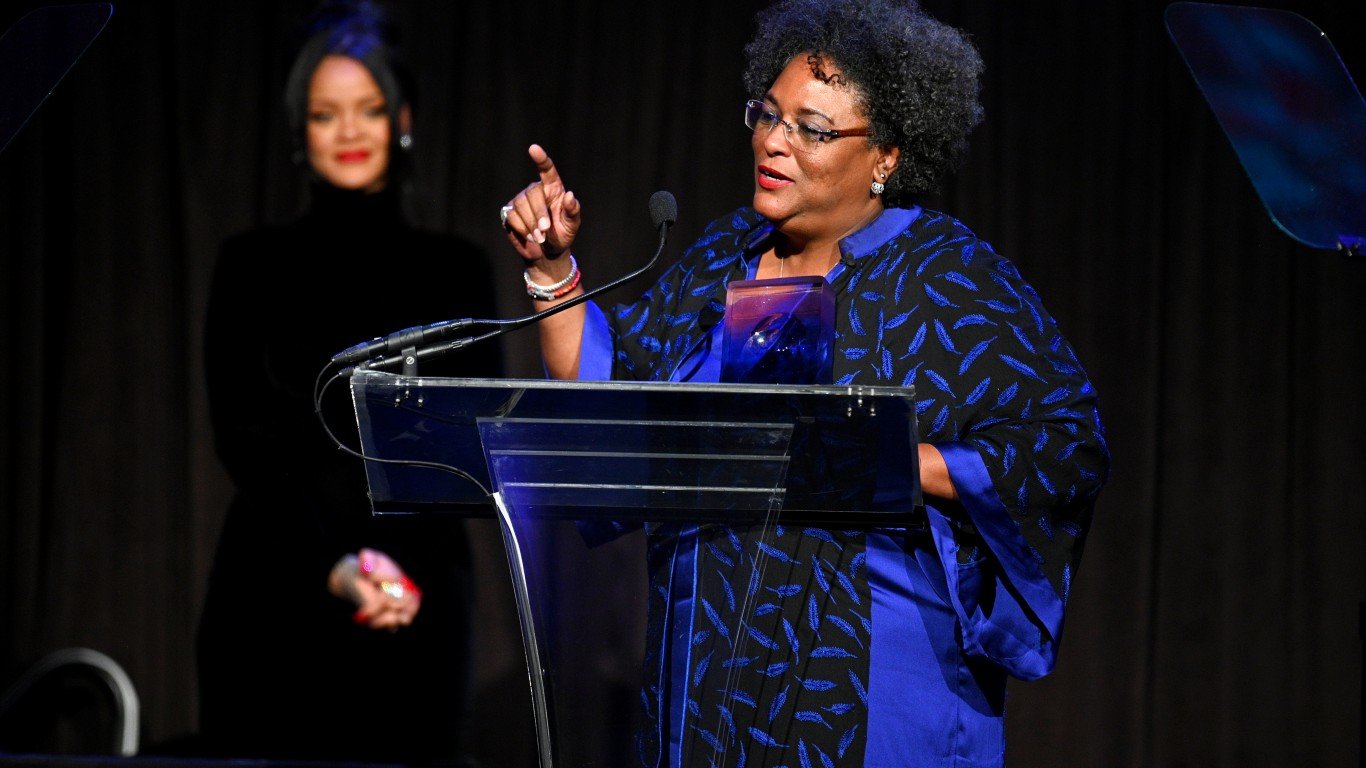
Mia Mottley, Prime Minister of Barbados
Barbados is a parliamentary democracy under a constitutional monarchy. The head of state is Queen Elizabeth II, and the head of government is the prime minister — currently Mia Mottley. She was elected in 2018 to become the first female prime minister of the Caribbean island after her Barbados Labour Party won in a landslide. The prime minister is the most influential political post in the country. Mottley appoints government ministers, advises the monarchy and the governor-general, and provides leadership and direction to the government.
[in-text-ad-2]
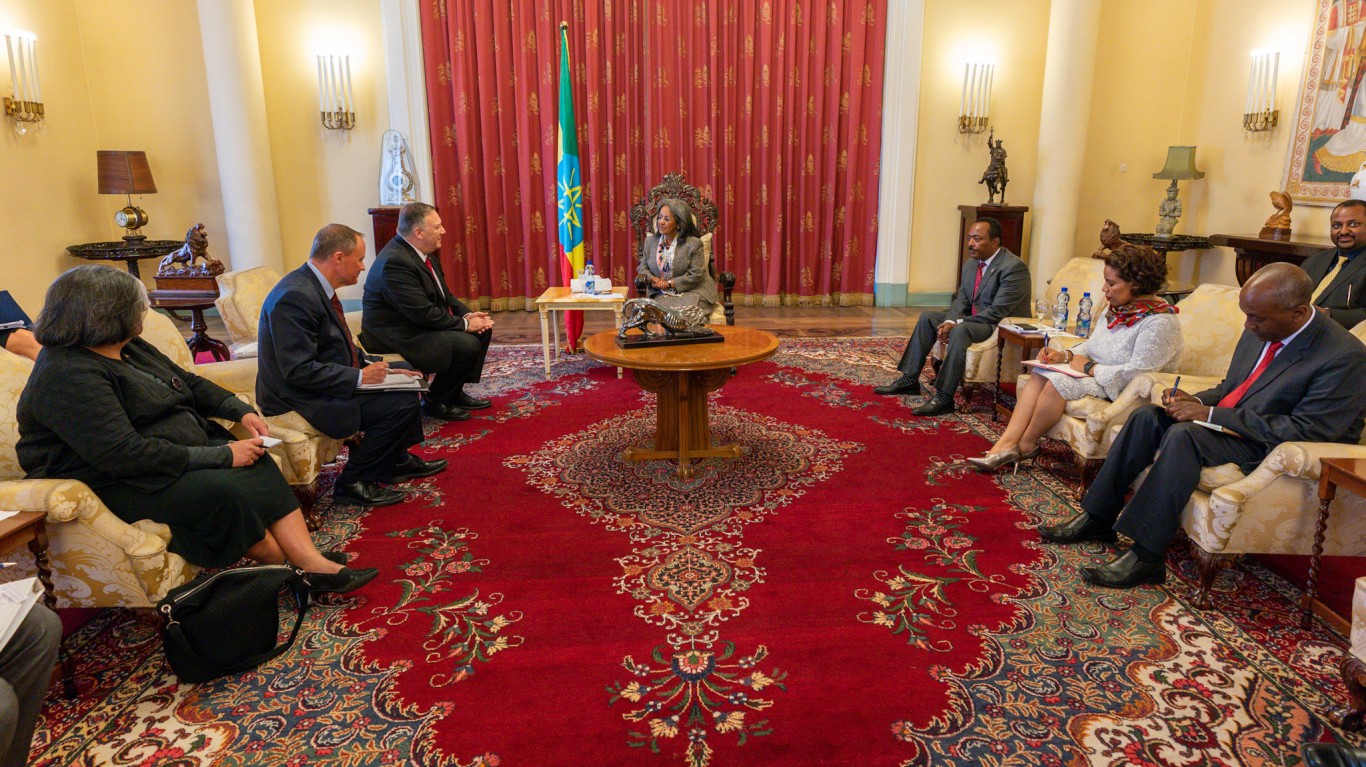
Sahle-Work Zewde, President of Ethiopia
Elected by parliament in 2018, Sahle-Work Zewde is Ethiopia’s first female president. Even though the president is mostly a ceremonial position, it carries symbolic weight and social influence. Sahle-Work Zewde has made gender equality the mission of her tenure.
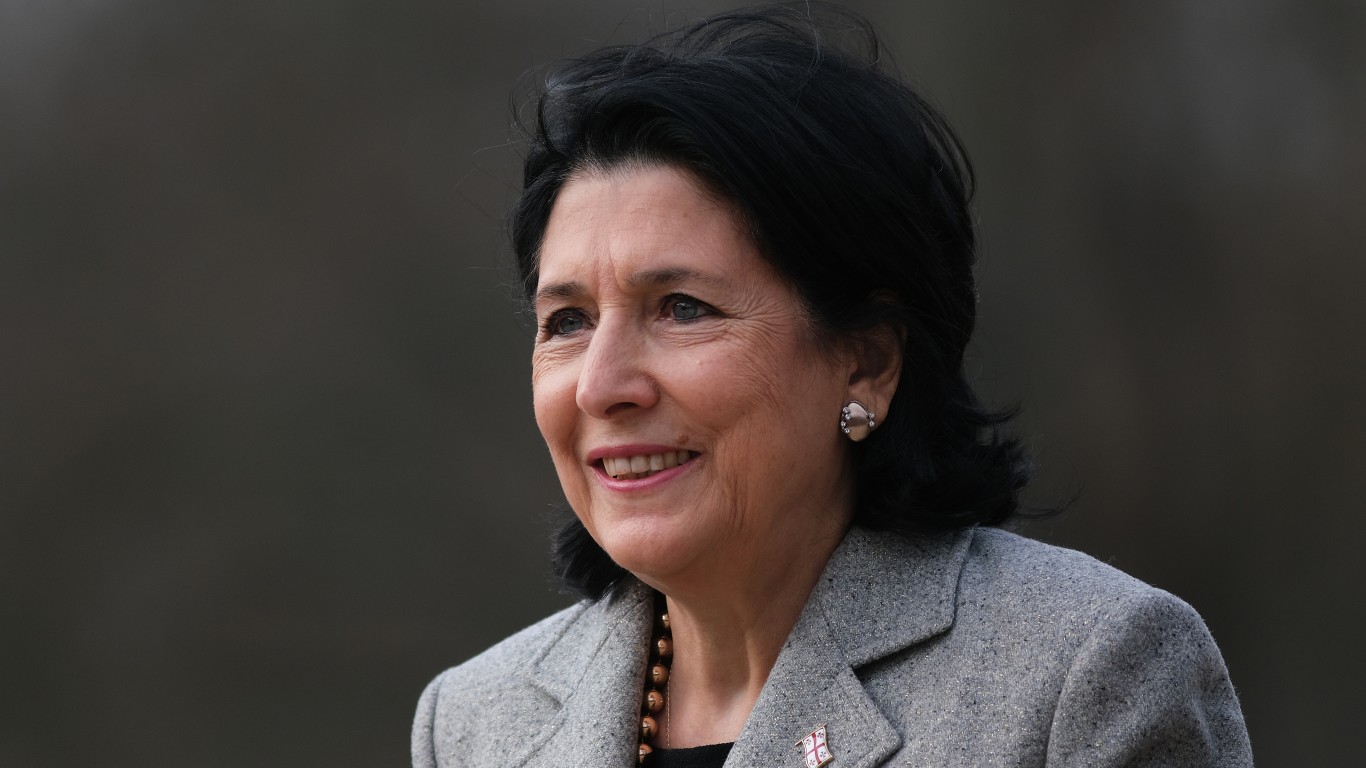
Salome Zurabishvili, President of Georgia
Salome Zurabishvili is the first woman directly elected president of Georgia; she will also be the last to be voted in by the electorate as the country is moving to a parliamentary system and the president will be chosen by an electoral college. The post of the president is mostly symbolic, but Zurabashvili still has some powers, including negotiating international treaties, appoint and dismiss ambassadors, call elections of parliament, and appoint people to key office positions.
[in-text-ad]
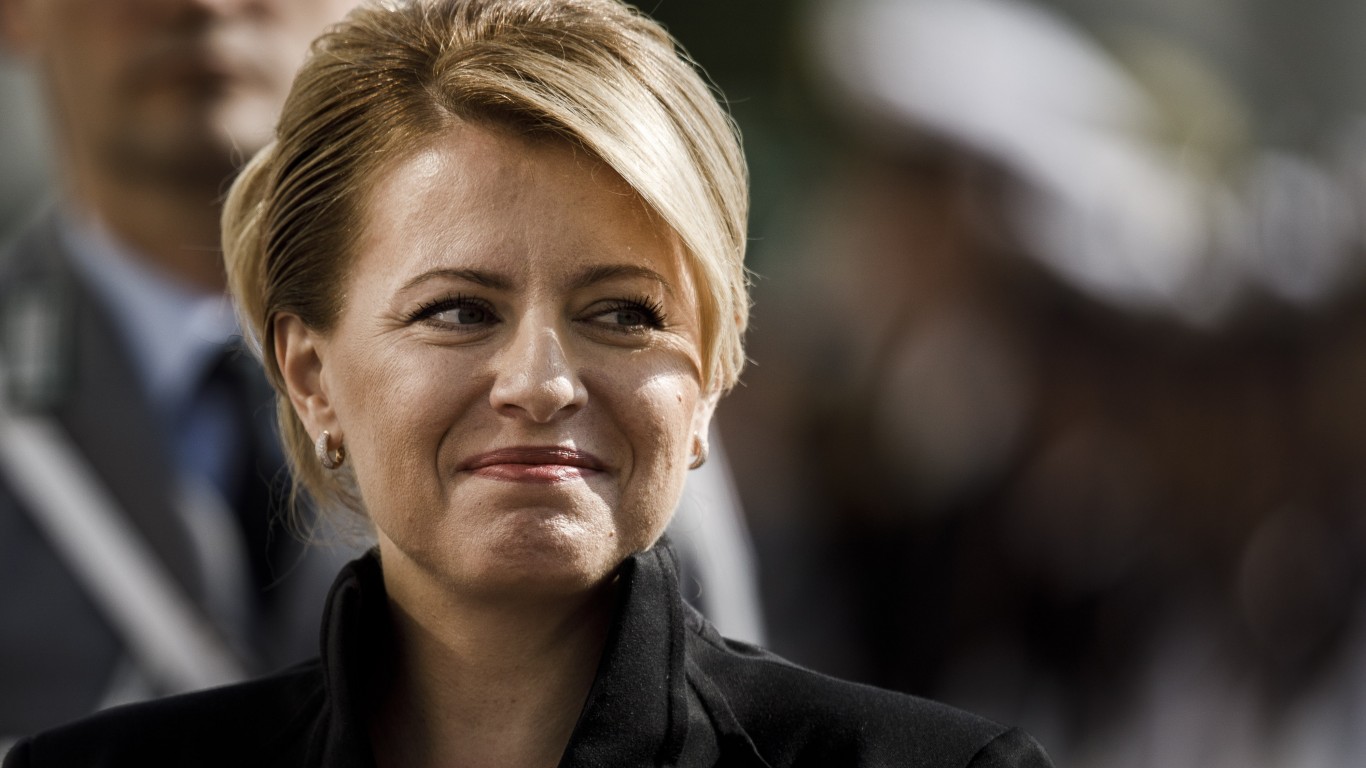
Zuzana Čaputová, President of Slovakia
Zuzana Čaputová, an environmental lawyer, was elected president of Slovakia in 2019 in the wake of a scandal that involved corruption that reached into the highest levels of government. Čaputová’s more liberal bona fides go against the grain of the more populist, right-leaning trend of nations in Central and Eastern Europe. She is an advocate for LGBT rights in a country that does not allow same-sex marriage nor adoption by same-sex couples. Čaputová, the first woman elected as president of Slovakia, is also dealing with discontent among Slovaks, who feel that their aspirations from the Velvet Revolution in 1989 that ousted Communism have not been fulfilled.
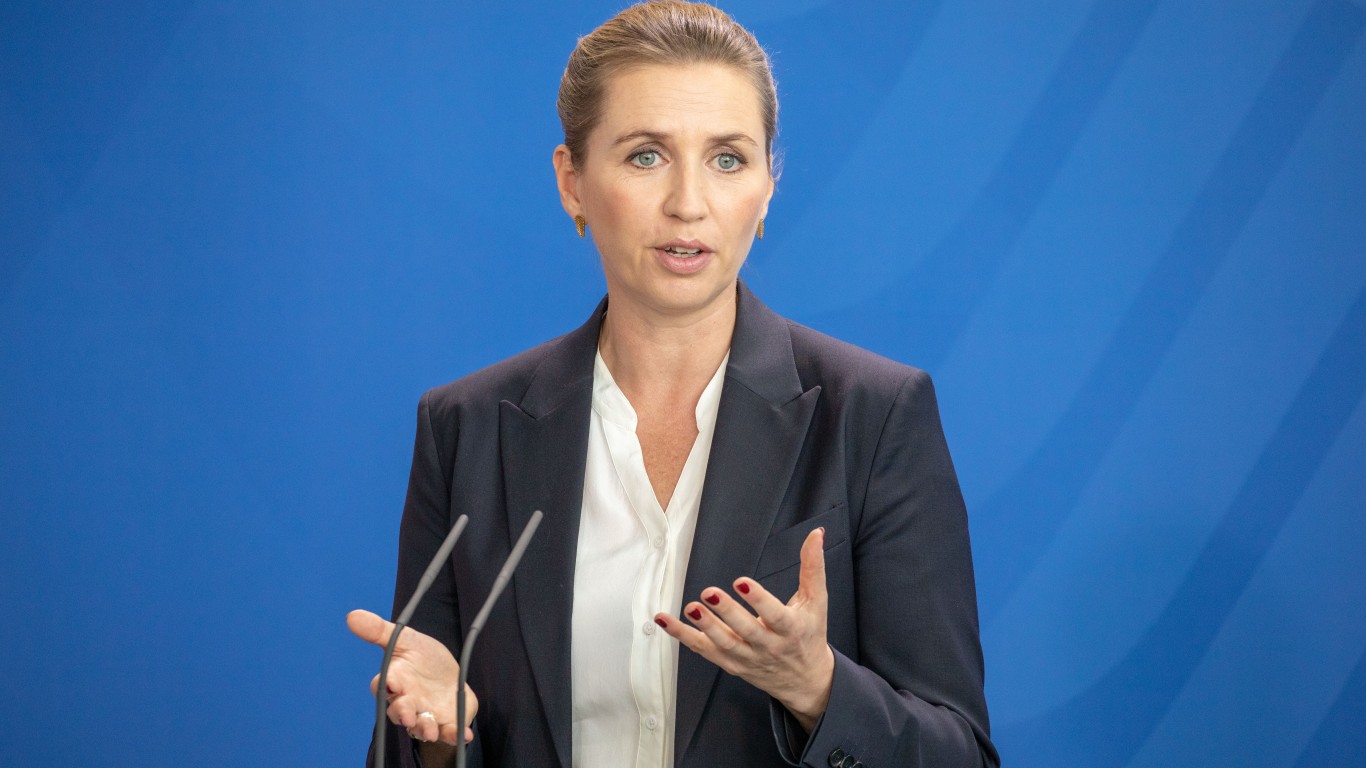
Mette Frederiksen, Prime Minister of Denmark
Denmark is a parliamentary constitutional monarchy with Queen Magrethe II being head of state and the prime minister head of government. Elected in June 2019, Mette Frederiksen, 41, is Denmark’s youngest prime minister ever. She is the leader of the center-left Socialist Democratic party, which supports aggressive anti-immigrant laws, greater public spending, and cutting greenhouse emissions. In December, she made international headlines by upsetting President Donald Trump after telling him Greenland wasn’t for sale.
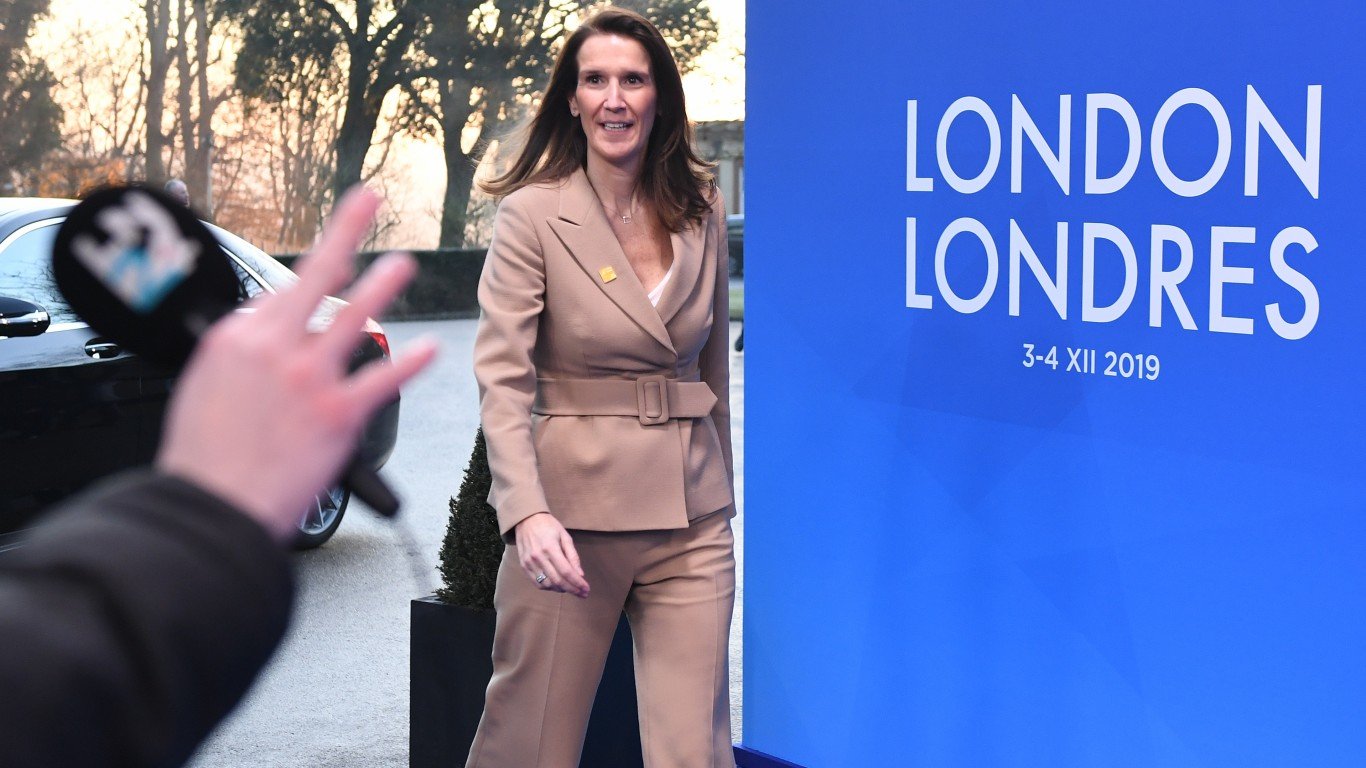
Sophie Wilmès, Prime Minister of Belgium
Sophie Wilmès became the first woman prime minister of Belgium in the nation’s 189-year history last October. Wilmès is leading a caretaker government, which has directed the Low Country since December of 2018 after the four-party coalition collapsed when the Flemish nationalist party withdrew from the government in protest of a UN migration agreement. Wilmès, who comes from a political family, is a member of the nation’s francophone liberal party. Prior to becoming prime minister, Wilmès supervised the government’s budget ministry for the prior administration.
[in-text-ad-2]
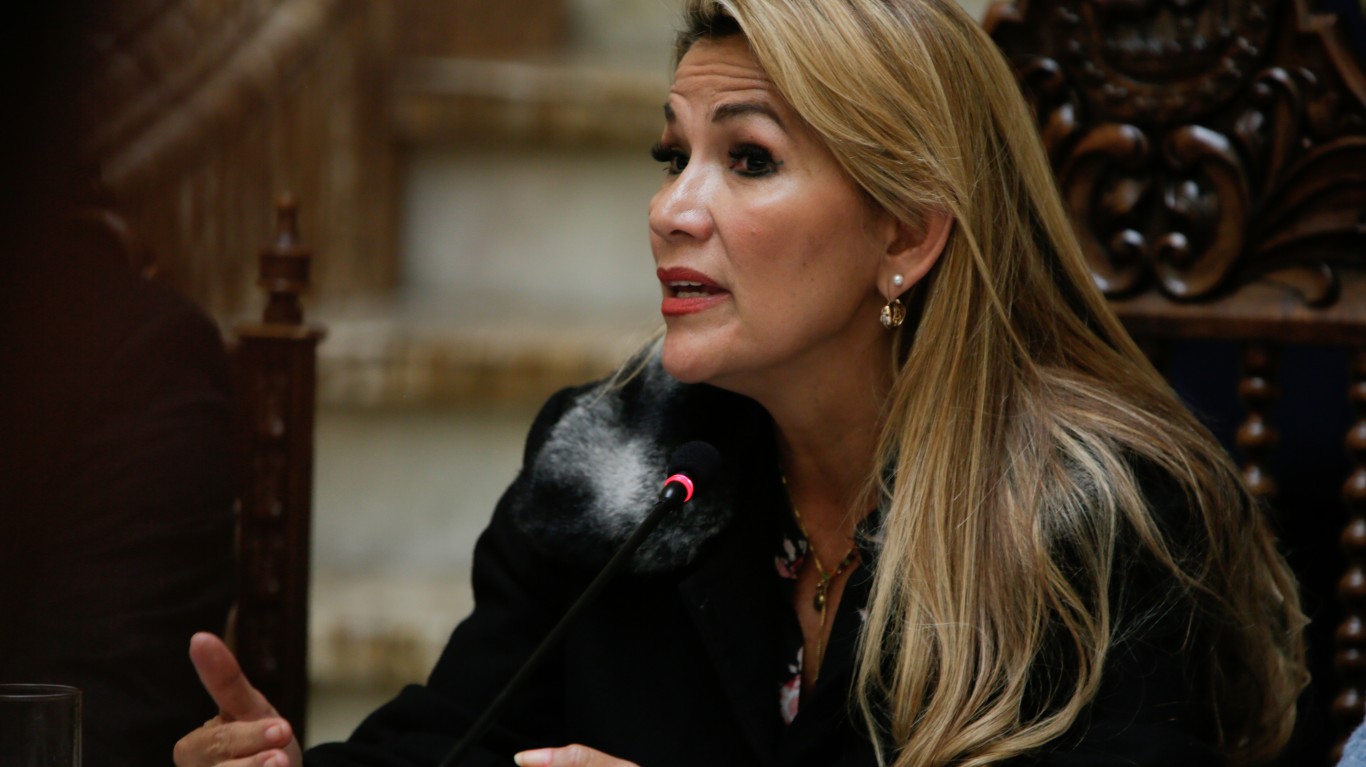
Jeanine Áñez, interim President of Bolivia
Jeanine Áñez, a former senator, became the interim president of Bolivia in November after former President Evo Morales was forced to step down and fled the country in the wake of election irregularities. Áñez, a religious conservative, took over the polarized nation that is among the poorest in South America. Her government was recognized by the U.S., the U.K., and conservative-run governments in South America. Since becoming president, Áñez has shifted the country’s foreign policy to a more rightward tilt. Bolivia recognized the government of Venezuela’s self-appointed president Juan Guaido, improved relations with the U.S., and severed diplomatic relations with Cuba. Áñez announced in January that she will run for president when elections are held in May.
Sanna Marin, Prime Minister of Finland
When 34-year-old Sanna Marin was sworn in as prime minister of Finland in December, she became the youngest leader of a nation in the world. Marin, whose star has been rising since she first was elected to the Finnish Parliament in 2015, succeeded Antti Rinne, who resigned over his handling of a postal strike. Marin is considered to be a left-tilting politician who is focused on equality, improving social welfare, and climate change. Scandinavian countries are among the most progresive when it comes to gender parity, and Finland is no exception. All of Finland’s major political parties are headed by women, and three of the leaders are under 35 years old.
Take This Retirement Quiz To Get Matched With An Advisor Now (Sponsored)
Are you ready for retirement? Planning for retirement can be overwhelming, that’s why it could be a good idea to speak to a fiduciary financial advisor about your goals today.
Start by taking this retirement quiz right here from SmartAsset that will match you with up to 3 financial advisors that serve your area and beyond in 5 minutes. Smart Asset is now matching over 50,000 people a month.
Click here now to get started.
Thank you for reading! Have some feedback for us?
Contact the 24/7 Wall St. editorial team.
 24/7 Wall St.
24/7 Wall St.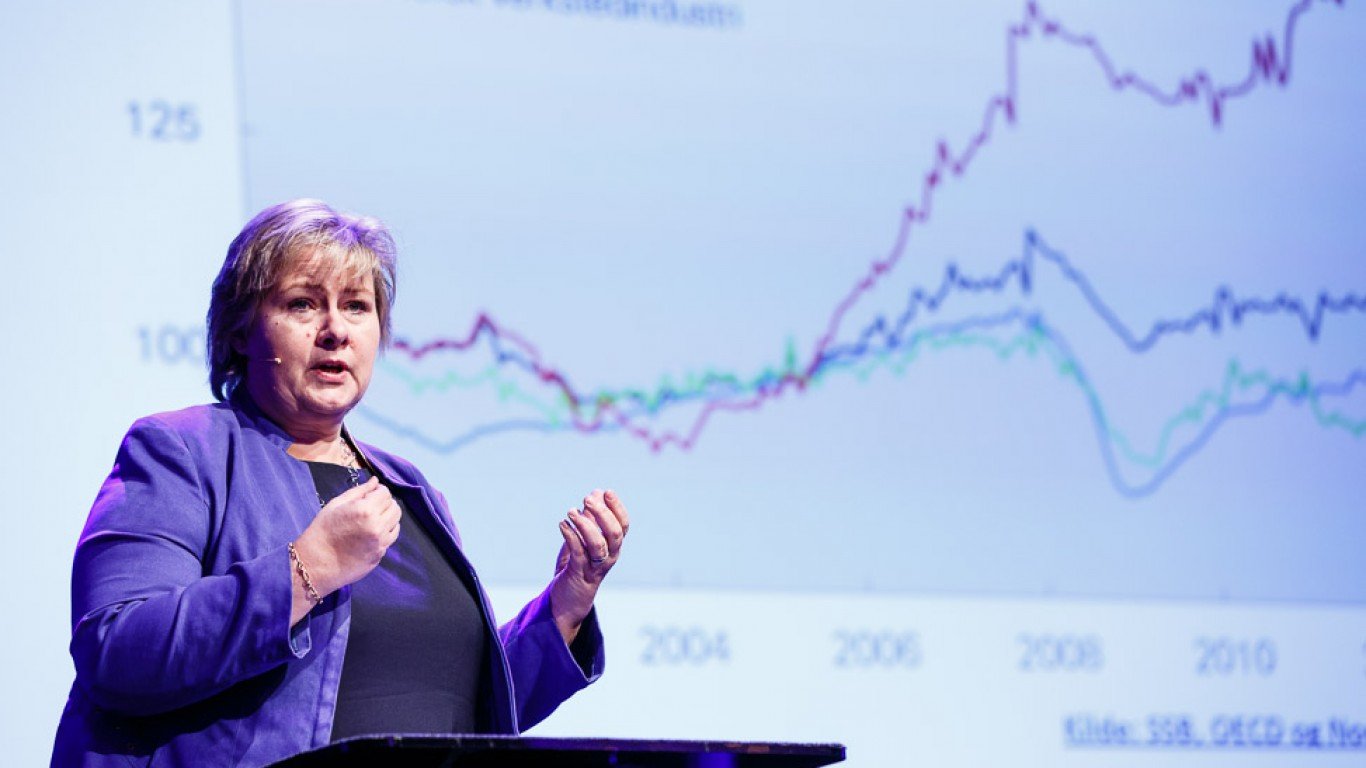
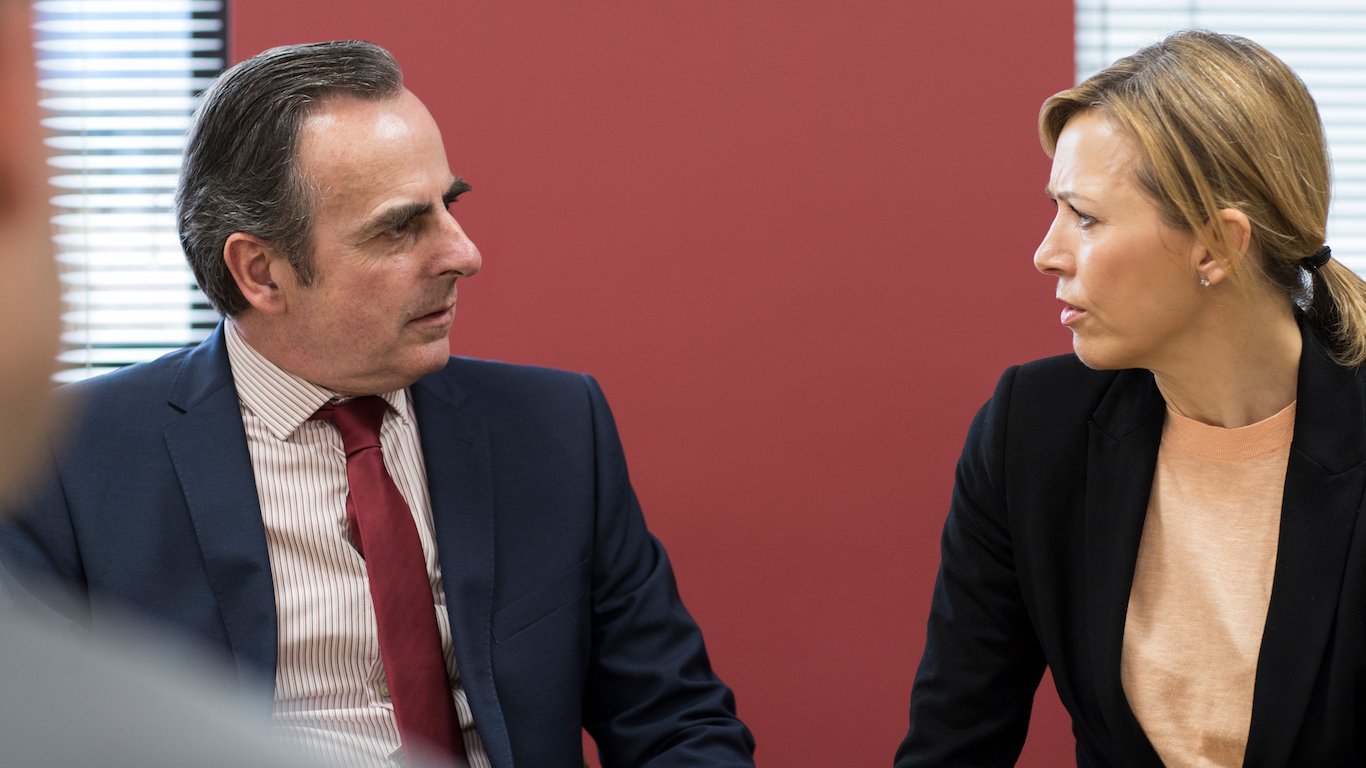 24/7 Wall St.
24/7 Wall St. 24/7 Wall St.
24/7 Wall St.